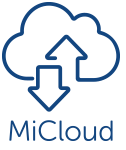By Rikus Jansen, Head of EOH Voice and Unified Communications
There’s a lot of talk in the market about the impending on masse entry of millennials into the workplace, and the changes that this will bring about. Many of these changes are tied to behavioural patterns and ways of interacting personally that are as natural to this generation as walking.
Within all of this talk what has been lacking is an examination of how millennials will influence the underlying technologies that ICT providers supply to companies. So let’s have a look at what it is about millennials that makes UC such a natural fit for them.
Millennials and tech
The primary requirement that millennials have is that the technology that they use to communicate in their private lives and to run their own affairs is available in the workplace, so that they can work in the same way that they live. This is an “always-on” generation, and technology is an extension of their selves. They require specific technologies in the same way that a previous generation of employees required laptops and cell phones.
However, it’s not just the technologies that the next generation of personnel will want – they also demand an environment in which they are ability to use those technologies in ways that they are used to. In other words, they want to be able to use the behaviour patterns that they find most effective in their personal lives in the workplace.
The implications for companies
What this means is that companies will have to make sure that they can offer all of the technologies, applications and ecosystems the millennial workforce will require. This goes far further than simply supplying the technology, however. Because work behaviour will change so drastically, new ways of managing employees will have to be found – particularly if the concept of work following people comes to full fruition.
There will also be an inevitable rubbing together of two different generations in the workplace, as millennials co-mingle with the generation before them, which is perhaps not as au fait with the new technologies and ways of working. A fair degree of change management is going to be needed.
The implications for companies
Effectively what we will be experiencing will be the full democratisation of information and an always-connected culture in which technology will allow work to be adapted to personal lifestyle patterns and geographic location. Work styles that are more adaptable and mobile in this way will require a powerful and flexible IT function in every organisation. It really will be a case of “join in the conversation or be left out completely”. Companies will need to provide applications that allow this.
Company networks will have to be optimised to cater for increased mobility, far more bandwidth usage, high-performance cloud-delivered applications, and the Internet of Things. The network, and interweaving it with IP telephony, is going to be the enabling imperative for this entire new way of working.
There will also be a significant change in security management requirements, which we are already seeing with the BYOD (bring your own device) trend. With everyone and everything constantly connected, keeping everything secure is going to create very different demands.
Rikus Jansen is a Unified Communications specialist. He entered the South African technology space in the late 1980s, pioneering 3D animation and video effects in the broadcasting industry. This led to a career in corporate ICT outsourcing. He co-founded Ensync Voice Solutions, a unified communications company. After merging the Ensync companies with the JSE-listed ICT provider, EOH, he now heads up the EOH Voice and Unified Communications business, which is one of the leading communication providers in South Africa.











